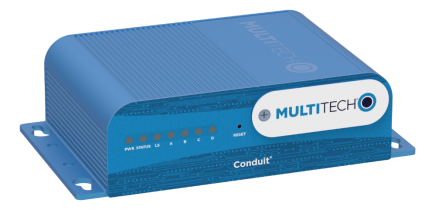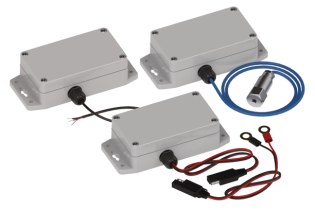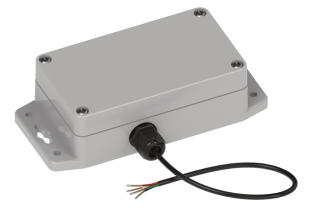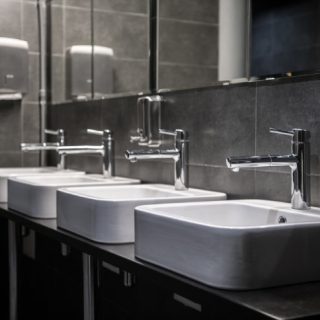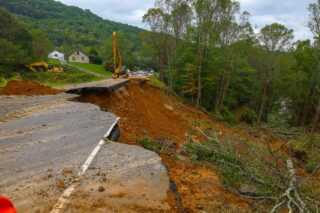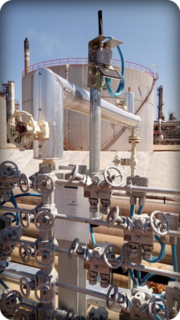NUCLEAR INVENTORY MONITORING
A Transformation for Safety
Challenge
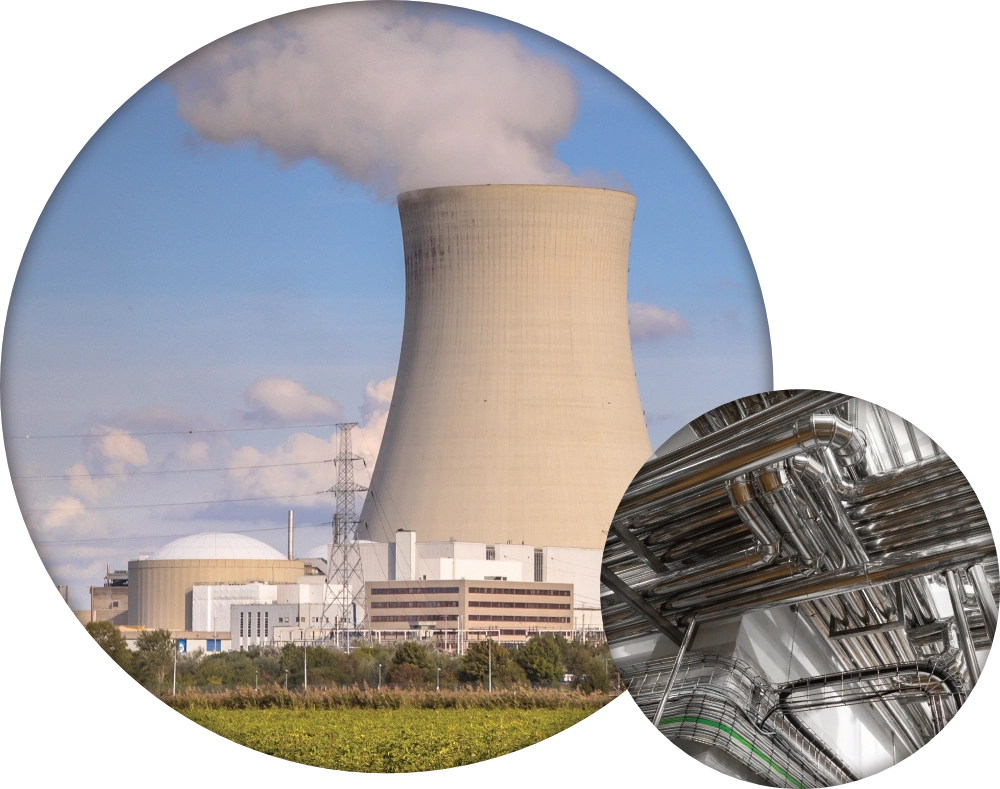
Equipment must be kept in a constant state of readiness. This involves maintaining the replacement equipment to be ready for use at a moment’s notice, including monitoring temperature and humidity to ensure the equipment doesn’t rust, protecting equipment seals from deterioration and ensuring batteries continue to hold a charge.
In response to these challenges, nuclear energy companies are developing remote monitoring for temperature, humidity, and battery condition (voltage), saving hours of manual labor and alleviating significant maintenance work orders per year. Nuclear companies are creating purpose-built IoT solutions providing program maintenance and real time data monitoring.
A priority is finding sensors that are wireless to avoid running wires to each sensor, which can be very costly for the customer and create trip hazards in their facilities.
Batteries need to be continually monitored to ensure proper battery voltage. If a battery is weak, it may not start a piece of emergency equipment that’s needed to keep an operating nuclear plant in a safe condition. If a decrease in battery voltage occurs, immediate action needs to be taken. Tracking the power levels of the banks of batteries is a daunting challenge. Battery inspections were previously performed manually during monthly or quarterly preventative maintenance inspections.
Nuclear companies are developing a battery management program comprised of IoT sensors that constantly track battery status. Previously, it was relying on monthly or quarterly manual voltage readings of all these batteries to determine if they were holding a charge and ready for use.

Solution
An easy solution is to use MultiTech LoRaWAN® wireless sensors. Sensors are wireless devices that gather sensory information from their surroundings and detect irregular changes in the environment, such as temperature, movement, air quality and lighting. These monitoring devices interact with central gateways through nodes organized to support the users’ individualized network goals. LoRaWAN sensors are a great solution in a nuclear plant due to their ability to transmit over long distances and in difficult wireless environments.
The sensors can be programmed over-the-air to change threshold settings. Using gateways, such as MultiTech’s LoRaWAN Conduit® gateway, the industry’s most configurable, manageable, and scalable LoRa gateway for industrial IoT applications, nuclear companies can monitor their large inventory of equipment without having the time and expense of manual routes.
Critical spares are stored in sealed vinyl bags, or tents, which provide humidity control using inert gas or desiccant. Previously, humidity in these bags had to be manually monitored every month to ensure humidity levels were below required thresholds. A better monitoring option is to use wireless temperature and humidity sensors for each of the bags to measure the humidity levels inside each enclosure in real time. Reports can be generated daily for all the equipment and in the event of an alert condition, notifications happen immediately via text or email.
Outlook
Thanks to the new advances in sensors and gateways, storage facilities for spare parts are always kept in optimal condition, protecting the parts they house, and the banks of batteries they maintain to ensure that the equipment is being monitored accurately, consistently and without fail. MultiTech LoRaWAN solutions are yet another safety measure to ensure that all equipment is in a constant state of readiness.
For additional information, contact: sales@multitech.com
